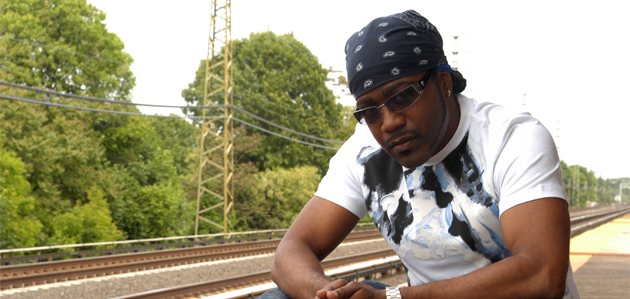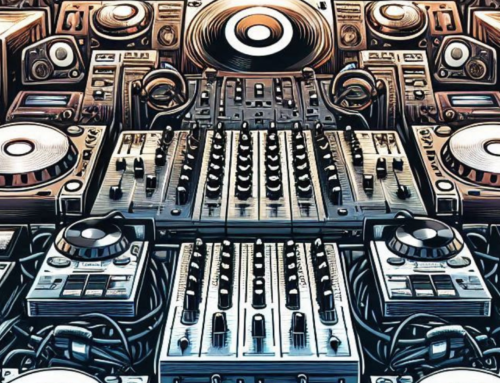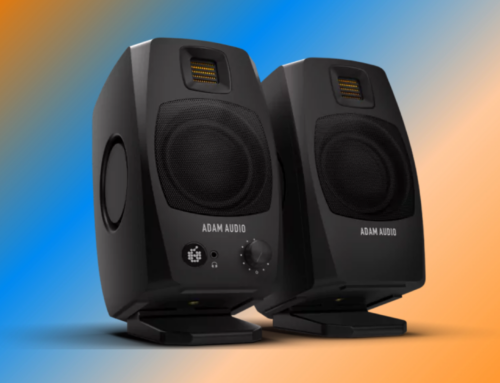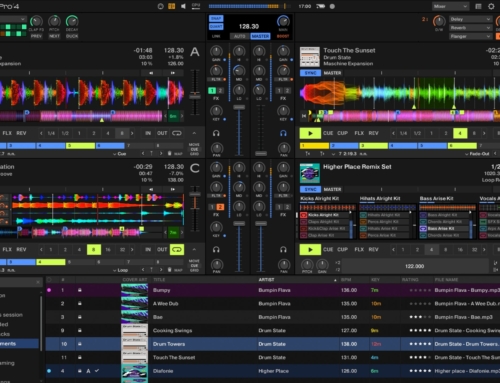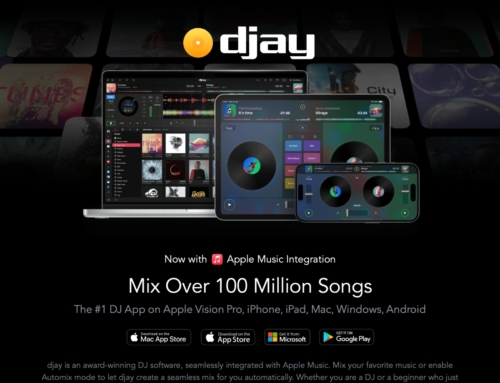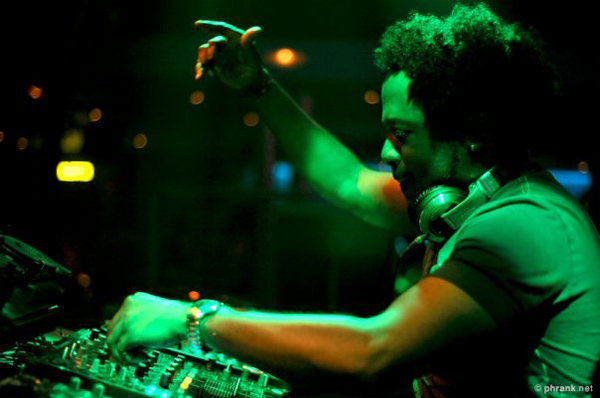
As a member of the underground electronic dance group Phuture, DJ Pierre was an instrumental figure in the foundation of the Chicago acid house sound. Phuture’s groundbreaking 1987 single “Acid Trax,” with its high-pitched Roland 303 squelches, is widely regarded as the first ever recorded example of acid house music.
Following on his early success with Phuture, Pierre went on to become one of the most iconic DJs ever to have been associated with the acid house phenomenon. Having recorded more than 100 records over the years, DJ Pierre’s influence has gone beyond just acid house to help inspire the evolution of house and electronic dance music as a whole.
DJ Pierre (real name Nathaniel Pierre Jones) was gracious enough to talk to crossfadr about acid house, technology, his influences, making music with a natural high, and what he’s been up to lately.
crossfadr: I read that you were influenced by the Hot Mix Five when you first started DJing. Could you talk about who they were and what they did?
DJ Pierre: The Hot Mix Five consisted of Farly Jackmaster Funk, Micky Mixin Oliver, Scott Smokin’ Silz, Julian Jumpin’ Perez, Kenny Jammin Jason and Ralphi Rosario. They were the first mix show DJ team in Chicago and we all listened non-stop to them on WBMX.
crossfadr: When you got your start DJing, what kind of records were you playing?
DJ Pierre: I played the heck out a lot of Italian disco imports like “Happy Disco.”
crossfadr: How did you get turned on to records and musical styles in those days?
DJ Pierre: From the mix shows like the Hot Mix Five. I come from a musical family so music was all over the hose. I listened to disco, reggae, soul, all kinds of music. The Hot Mix Five shows definitely helped open me up as well. But Spanky (fellow member of Phuture) was the one who got me sold on house music when he invited me to hear Ron Hardy at the Music Box. I was gone after that.
crossfadr: Did Chicago house music already exist when you first started DJing?
DJ Pierre: For sure…it did. Chicago has an endless talent pool of people. You had people before me like Ron Hardy, Lil Louis, Farley, and Frankie Knuckles. I didn’t start DJing until 1983 so they were actually doing it before me. Lil Louis gave me my first big break opening for him at one of his infamous events at the Bismarck, a classic venue with over 5000 people every time. It was a huge production, classy.
crossfadr: What made you want to transition from just spinning records to recording your own tracks as well?
DJ Pierre: My friend Spanky always talked about wanting to buy a drum machine and make tracks. When he got the drum machine it was so much fun playing with it. I also saw I had a natural process with it. I saw that it had more to give than what it was created for and I was going to explore it. Kinda like what happened with the 303.
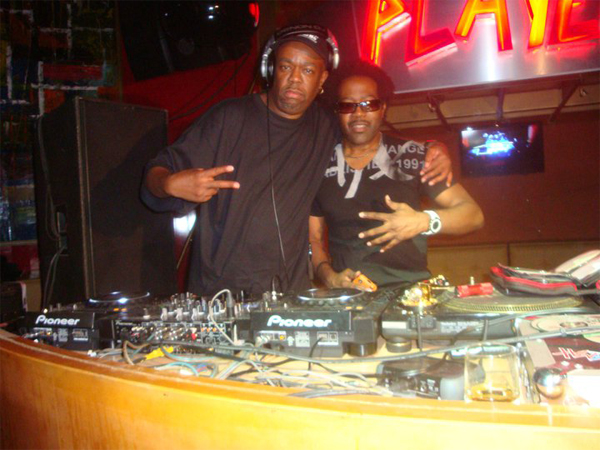
Spanky & DJ Pierre (Phuture)
crossfadr: What attracted you to the Roland TB-303?
DJ Pierre: The texture of the bass sound. The potential that I knew it had…
crossfadr: How did you come across the unique high-pitched proto-acid house squelch sounds you used it to produce?
DJ Pierre: When I started twisting the knobs it’s like heaven opened up….I knew from my guy we were onto something. I twisted and twisted and came across that squelching high sound.
crossfadr: Had anyone ever used a 303 to produce sounds like that before?
DJ Pierre: No. It was unprecedented. We weren’t going based on something we had heard before. We just went with what we felt.
crossfadr: How did the group Phuture come about?
DJ Pierre: Spanky was like “Man we should make a group and do music,” and I was like “cool!”
crossfadr: When you guys were first recording, did you consciously try to come up with a new sound, a new musical genre?
DJ Pierre: No not really, we were just trying to make something unique and different that also sounded good!
crossfadr: Why did you call your first recording “Acid Trax?”
DJ Pierre: Because the people had named it that. Rumors were all around Chicago about this new track that Ron Hardy was playing wascalled “Acid Trax.” They said the track made you respond as if you were on acid…so the saying goes. So we didn’t re-invent the wheel, we just kept the name.
crossfadr: Was your music at the time influenced by psychedelic drugs?
DJ Pierre: Absolutely not. I’ve never done drugs man. We actually did a track called “Your Only Friend,” but you may know it as “The Cocaine Song.” Basically this menacing voice (Spanky) saying what will happen if you mess with drugs, “I’ll take your life from you” etc. It was a warning and we hoped people took notice. So we were always drug free. All my productions were done from a natural high. Even when I DJ…the people are my high. I get offered all the time but refuse. People are shocked when I say I don’t even drink…at all. But that’s the way God made me. I’ve never gravitated to any mind-altering substance.
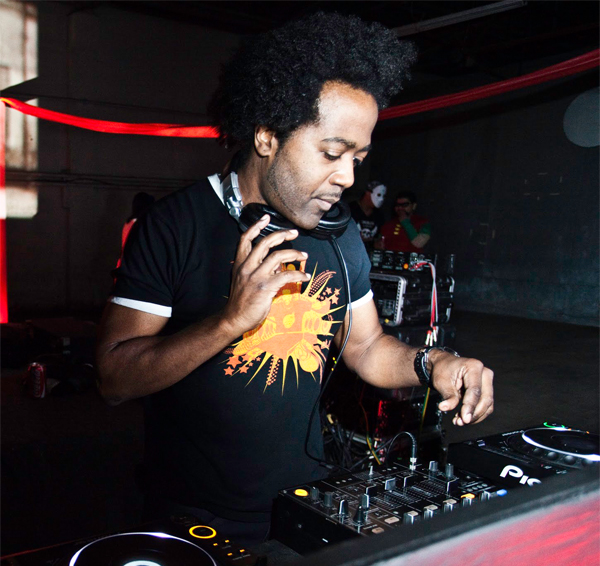
crossfadr: Acid house seemed underground in Chicago, but got majorly big in the UK. Were you able to cash in on the success of the genre you helped create?
DJ Pierre: Not at the time that it was very big in Europe because I had NO idea. My label at the time (Trax Records) was underhandedly exporting tons of copies without compensating us. I didn’t make it to the UK until 1991 as a DJ. I found out when a reporter from London came looking for me. So for years they profited but in the end we have the legacy as the creators of this genre and over the years, saw the profits as well. So it all worked out for our benefit. What is for you…is for you. Period.
crossfadr: Why do you think house music is so much bigger in Europe than it is in America?
DJ Pierre: Because the tracks hit the UK top 40 charts back in the late 80’s and they still do. Europe is a different machine. They embrace this music like the US embraces pop, hip-hop, etc.
crossfadr: How many records have you recorded over the years?
DJ Pierre: Definitely more than 100.
crossfadr: What have you been working on lately?
DJ Pierre: I have 4 huge projects coming out. On BNR Records (Boys Noize Records) I have a two-track release coming out titled “Acid” and “Jack The Groove.” That’s out in late February, March. I have another two-track release set to come out before summer on Steve Aoki’s label Dim Mak, called “Strobe Lights, Laser, Disco” and “Let Me See U Dance.” I’m also remaking “We Are Phuture” with Carl Cox on Bush Records. That’s set to come out in March. Lastly I’m doing an original production with Reggae/pop star Sean Paul. That’s set to come out for Summer 2012 as well.
 crossfadr: What about live appearances?
crossfadr: What about live appearances?
DJ Pierre: I’m putting together a live show that will consist of me using drum machines and the 303 with my laptop and a live vocalist or named performer. That will be ready before summer 2012. I’ll be performing the new tracks on BNR, Bush Records, Dim Mak, and also a couple of old favorites.
crossfadr: How do you think acid house has been inspirational to dance music and electronic music as a whole?
DJ Pierre: I think it had a great deal of influence on a lot of the top DJ’s in the world today. Just ask them and they’ll tell you. There would be no trance, no techno. At least not the same. I hear its influence all over. In commercials, in songs. Your article said it best when you wrote LMFAO had it all over their “Sexy” track.
crossfadr: Who are some DJs/producers/artists that inspired you back in the day?
DJ Pierre: Ron Hardy, Lil Louis, Marshall Jefferson, Fingers Inc. to name a few.
crossfadr: What DJs/producers/artists today do you think are doing cool stuff?
DJ Pierre: Afro Jack, Popof, Chris Lake, Boys Noize, Steve Aoki and a few others.
crossfadr: What do you think about the digital DJ movement: Traktor, Serato, DJ controllers, etc.?
DJ Pierre: Well I love the technology. I just want DJs to be real DJs. Don’t use the technology to blend two records. Don’t use the sync button. If you are using the sync button to help you keep a track on beat, then you’re not a real DJ. So I’m open to the technology, I’m endorsing Traktor actually. It’s necessary. But like all things new, they can’t fall into the wrong hands!
crossfadr: So what’s your opinion of the DJ scene at the moment?
DJ Pierre: It’s not about how well you can play, it’s more about how popular or how hot your tracks are. DJs don’t have to know how to DJ well. But with that said I believe that it does make sense if you have hot music out there you should get booked and paid more because of that. But I just want the DJs shows to be hot as well.
crossfadr: What advice would you give to up and coming DJs?
DJ Pierre: Learn and love your craft…and make a hot track!
crossfadr: Today, how can you differentiate acid house from minimal house?
DJ Pierre: I think anything that is totally driven by the acid line should be call acid-whatever.
crossfadr: How would you like to be remembered?
DJ Pierre: As a God-fearing man. A good man, a good husband, father, and son. A good friend and an honest person with good morals and integrity. A giving person. And way down on the list… as one of the inventors of acid house. I haven’t perfected everything on the list but I am working towards it everyday.
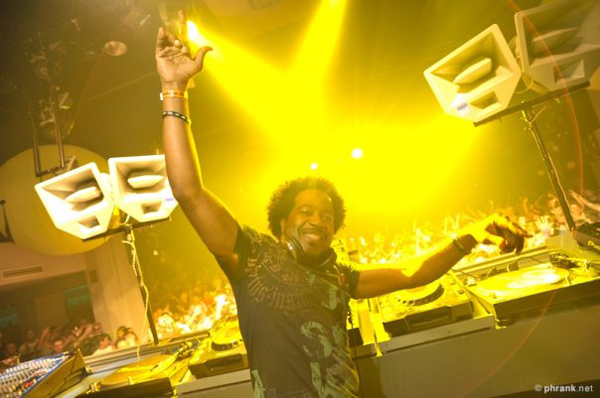
www.twitter.com/djpierre
www.facebook.com/deejay.pierre
www.facebook.com/djpierreacidhouseNew Release- “Acid” coming out on BNR soon…(Boys Noise Records)
INTRODUCING THE DJ PIERRE IPHONE APP WITH MIXES, LIVE SETS!!!
Download Here – http://itunes.apple.com/us/app/dj-pierre-by-mix-dj/id396908486?mt=8
